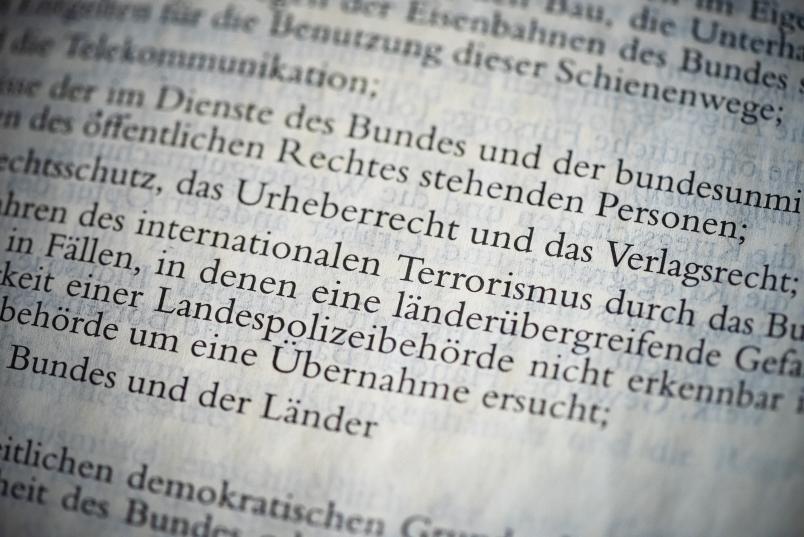
Constitutional law
The fight against terrorism is a balancing act
Do we have to curtail our freedom for more security? Theresa Bosl analyses how counter-terrorism in Germany might be reformed.
On 19 December 2016, the Tunisian Anis Amri steered a stolen truck into a crowd at Berlin’s Breitscheidplatz Christmas market, killing 12 people and injuring more than a hundred. Theresa Bosl, doctoral student at the RUB Chair of Public Law headed by Professor Pierre Thielbörger, was a research assistant in the German Parliament’s committee investigating the Islamist terrorist attack. In her PhD thesis, Bosl exposes deficits in the fight against terrorism and discusses reform options from the perspective of constitutional law: how can the authorities react more effectively in the future to attack plans that they know about and prevent them? Rubin, the RUB’s science magazine, features an article on her research findings.
“A nationwide terrorist threat, as in the case of the terrorist Anis Amri, can fall under the jurisdiction of both the federal government and the federal state under threat and, consequently, lead to different regulations, assessments and decisions,” explains Theresa Bosl. For the purpose of her research, the legal scholar takes a closer look at the security authorities of the Federal Republic of Germany and the constitutional provisions on their respective competences and duties. In the process, she primarily assesses the executive competences, i.e. those of the security authorities that take operative action in the fight against terrorism, such as the Federal Intelligence Service (BND), the Federal Office for the Protection of the Constitution (BfV) and the Federal Criminal Police Office (BKA). Reflexive demands for more centralisation of powers or expansion of competences, for example in surveillance, would fall short. Federal structures can lead to a loss of effectiveness, but the main problem lies in cooperation or coordination and not in the actual distribution of competences.
[einzelbild: 1]
Introducing effective cooperation mechanisms
In her analysis of the security structures, the legal scholar criticises above all the lack of effective cooperation mechanisms. “The disastrous factor in the Amri case was that two federal states had different views on how great a threat he was; as a result, they adopted contradictory measures that made Amri suspicious and thus impeded the success of an investigation,” Bosl explains. The researcher therefore suggests strengthening platforms in which representatives of all security authorities exchange information on a daily basis, such as the Joint Counter-Terrorism Centre.
Restructuring public authorities
Theresa Bosl considers the current structure of the public authorities to be yet another acute problem. “Our security agencies are organised into domestic and external security: while the BND deals exclusively with terrorist threats from abroad, the BfV is in charge of national terrorist threats,” she explains. According to her, this division is outdated and no longer reflects reality. “Today, terrorists act globally by networking digitally and crossing borders with relative ease,” describes Bosl. Her suggestion is therefore to reorganise the authorities by different phenomenon areas.
[einzelbild: 2]
Bundling control
Bosl also finds the work of the many supervisory bodies and committees that monitor the activities and procedures of the security authorities in need of reform. “The fact that there are so many supervisory bodies, such as the G10 Commission, the Parliamentary Oversight Panel and the Federal Commissioner for Data Protection and Information Security, is an important step in the right direction. However, the number alone does not ensure effectiveness.” It would be more effective to bundle control and involve more trained personnel instead of running a multitude of bodies with inadequate powers.
Theresa Bosl is currently assessing whether the reform options that have been drawn up would be compatible with the constitution. Her research is intended to help ensure that future reforms lead to structural improvements in the fight against terrorism in the long term, without jeopardising the balance between freedom and security.
[infobox: 1]
[infobox: 2]

